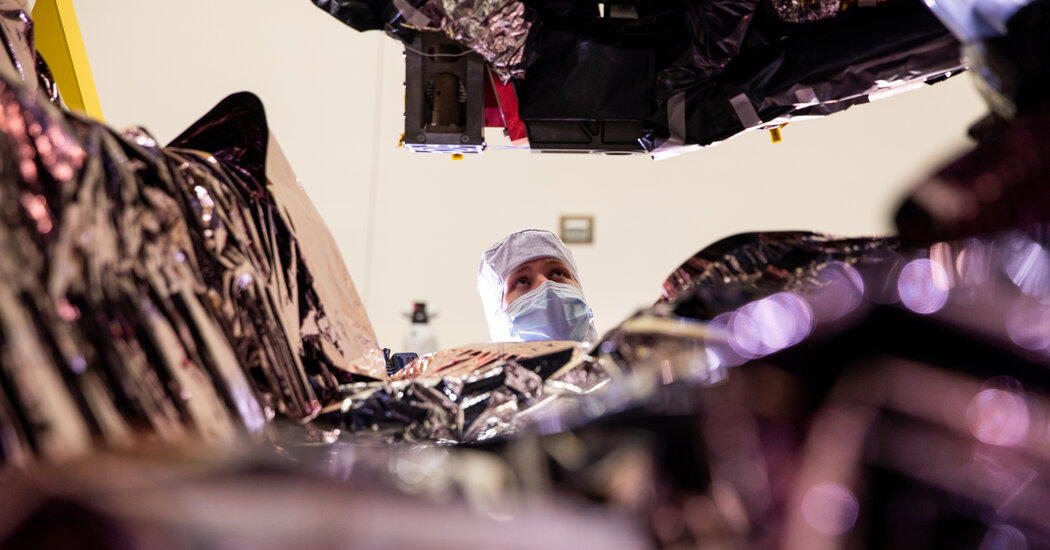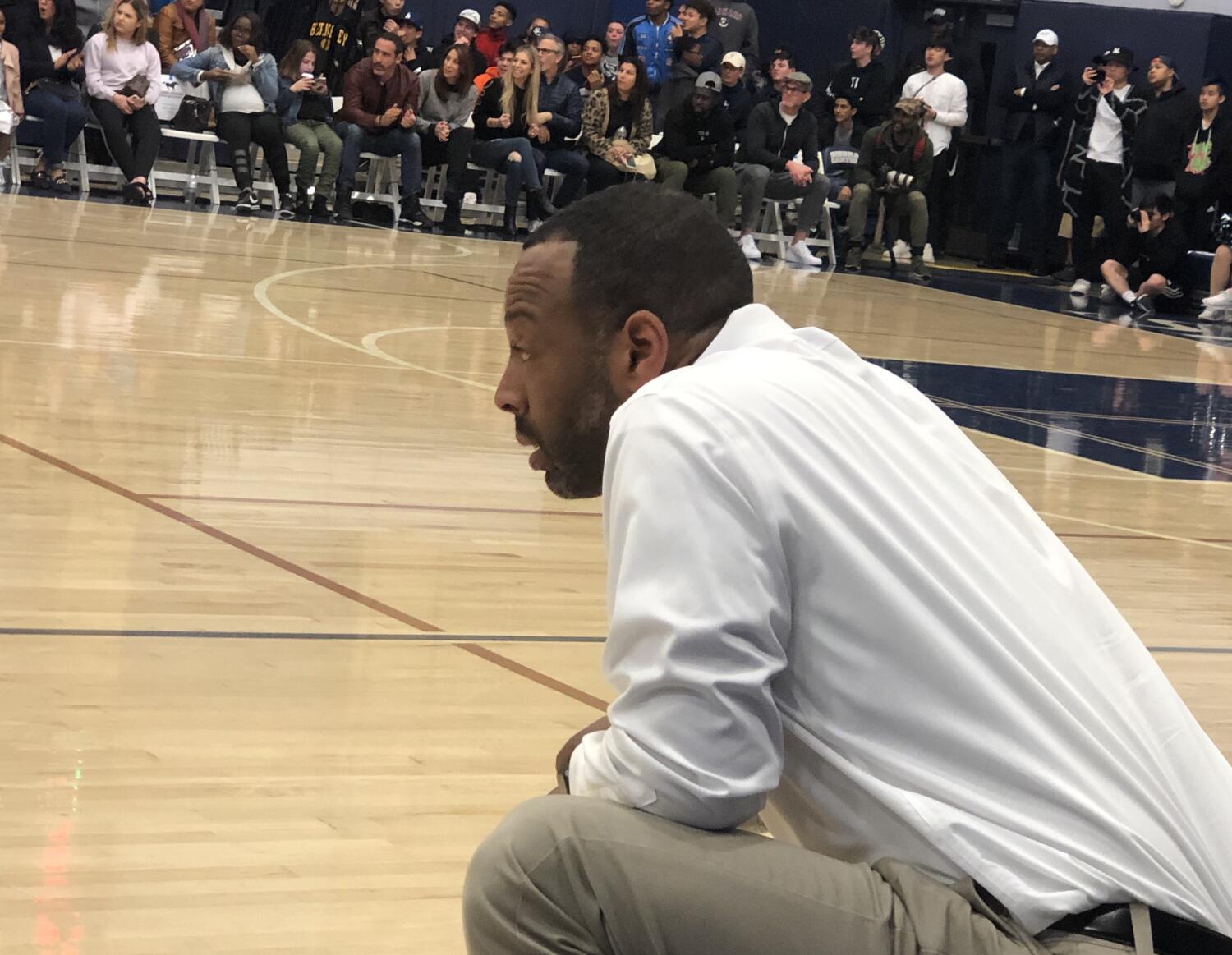
What do astronomers eat for breakfast on the day that their $10 billion telescope launches into space? Their fingernails.
“You work for years and it all goes up in a puff of smoke,” said Marcia Rieke of the University of Arizona.
Dr. Rieke admits her fingers will be crossed on the morning of Dec. 24 when she tunes in for the launch of the James Webb Space Telescope. For 20 years, she has been working to design and build an ultrasensitive infrared camera that will live aboard the spacecraft. The Webb is the vaunted bigger and more powerful successor to the Hubble Space Telescope. Astronomers expect that it will pierce a dark curtain of ignorance and supposition about the early days of the universe, and allow them to snoop on nearby exoplanets.
After $10 billion and years of delays, the telescope is finally scheduled to lift off from a European launch site in French Guiana on its way to a point a million miles on the other side of the moon. (Late on Tuesday, NASA delayed the launch at least two days).
An informal and totally unscientific survey of randomly chosen astronomers revealed a community sitting on the edges of their seats feeling nervous, proud and grateful for the team that has developed, built and tested the new telescope over the last quarter-century.
“I will almost certainly watch the launch and be terrified the entire time,” said Chanda Prescod-Weinstein, a professor of physics and gender studies at the University of New Hampshire.
And there is plenty to be anxious about. The Ariane 5 rocket that is carrying the spacecraft has seldom failed to deliver its payloads to orbit. But even if it survives the launch, the telescope will have a long way to go.
Over the following month it will have to execute a series of maneuvers with 344 “single points of failure” in order to unfurl its big golden mirror and deploy five thin layers of a giant plastic sunscreen that will keep the telescope and its instruments in the cold and dark. Engineers and astronomers call this interval six months of high anxiety because there is no prospect of any human or robotic intervention or rescue should something go wrong.
But if all those steps succeed, what astronomers see through that telescope could change everything. They hope to spot the first stars and galaxies emerging from the primordial fog when the universe was only 100 million years or so old, in short the first steps out of the big bang toward the cozy light show we inhabit today.
“The entire astronomy community, given the broad range of anticipated science returns and discovery potential, has skin in the game” with the telescope, said Priyamvada Natarajan, an astrophysicist at Yale. “We are all intellectually and emotionally invested.”
But the telescope has been snake bitten during its long development with cost overruns and expensive accidents that have added to the normal apprehension of rocket launches.
Michael Turner, a cosmologist at the Kavli Foundation in Los Angeles and past president of the American Physical Society, described the combination of “excitement and terror,” he expected to feel during the launch.
“The next decade of astronomy and astrophysics is predicated on J.W. being successful,” Dr. Turner said, referring to the James Webb Space Telescope, “and U.S. prestige and leadership in space and science are also on the line. That is a heavy burden to carry, but we know how to do great things.”
That opinion was echoed by Martin Rees of Cambridge University and the Astronomer Royal for the British royal households.
“Any failure of JWST would be disastrous for NASA,” he wrote in an email. “But if the failure involves a mechanical procedure — unfurling a blind, or unfolding the pieces of the mirror — this will be a mega-catastrophic and embarrassing P.R. disaster. That’s because it would involve a failure of something seemingly ‘simple’ that everyone can understand.”
Dr. Natarajan, who will use the Webb to search for the origins of supermassive black holes, said, “I am trying to be Zen and not imagine disastrous outcomes.”
But in describing the stakes, she compared the telescope to other milestones of human history.
“Remarkable enduring achievements of human hand and mind, be it the temples of Mahabalipuram, the pyramids of Giza, the Great Wall or the Sistine Chapel have all taken time and expense,” she said. “I truly see JWST as one such monument of our times.”
Alan Dressler of the Carnegie Observatories in Pasadena, who was chair of a committee 25 years ago that led to the Webb project, responded with his own question when asked how nervous he was.
“When you know someone is about to have critical surgery, would you sit around and have a conversation about ‘what if it fails?’” he wrote. He added that his colleagues “know there is no certainty here, and it does no good for any of us to ruminate about it.”
Another astronomer who has been involved with this project from the beginning, Garth Illingworth of the University of California, Santa Cruz, said in an email that he was optimistic about the launch despite his reputation of being a “glass is half empty” kind of guy.
“The deployments are complex but my view is that all that is humanly possible has been done!” he wrote. He said that even if there were surprises in the telescope’s deployment, he did not “expect these to be either major or mission terminating — not at all.”
Other respondents to my survey also took refuge from their nervousness in the skill and dedication of their colleagues.
Andrea Ghez of the University of California, Los Angeles, who won the Nobel Prize in 2020 for her observations of the black hole in the center of our galaxy, said she kept herself sane “by trusting that really smart people have worked really hard to get things right.”
That thought was seconded by Tod Lauer, an astronomer at NOIRLab in Tucson, Ariz., who was in the thick of it when the Hubble Space Telescope was launched and found to have a misshapen mirror, which required repair visits by astronauts on the now-retired space shuttles. He said his feelings regarding the upcoming launch were all about the engineers and technicians who built the Webb telescope.
“You very quickly respect the team nature of doing anything in space, and your dependence on scientists and engineers that you may never even know to get it all right,” he said. “Nobody wants it to fail, and I have yet to meet anyone in this who didn’t take their part seriously.”
He added that astronomers had to trust their colleagues in rocket and spacecraft engineering to get it right.
“Someone who knows how to fly a $10 billion spacecraft on a precision trajectory is not going to be impressed by an astronomer, who never took an engineering course in his life, cowering behind his laptop watching the launch,” Dr. Lauer said. “You feel admiration and empathy for those people, and try to act worthy of the incredible gift that they are bringing to world.”
And if anything does go wrong, some astronomers said they would keep in perspective that it’s only hardware, not people, at stake.
“Should anything bad happen, I will be heartbroken,” Dr. Prescod-Weinstein said. “I am glad that at least human lives aren’t on the line.”
There was also a lot to look forward to if everything works as intended, said Dr. Rieke, who worked on the telescope’s infrared imaging device.
“When the camera turns on we’ll have another party,” she said.







